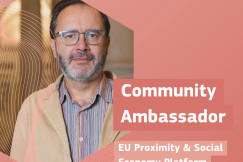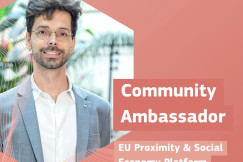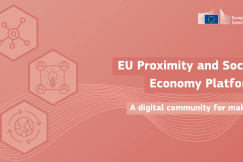Best practices
19 December 2024
Urbike & FACQ, a Belgian partnership of unlikely allies
Best practices
19 December 2024
Partnerships
Regenerative Green Transition
Urban and Rural Wellbeing
+13 more
Login / create an account to be able to react
-
16

This case concerns a Brussels-based partnership between Urbike, which offers a bicycle delivery service, and Facq, which sells bathroom and heating accessories. Products are transported from Facq’s Anderlecht hub to the 19 municipalities in Brussels and are delivered directly to clients' homes or construction sites. With routes covering a distance of 3,612 km, this approach has significantly decreased delivery time and costs, as well as prevented the emission of 1,444 kilograms of CO2. This pioneering approach by Facq sets an example in its sector. Urbike anticipates that Facq's initiative will inspire other companies to consider using cargo bikes for transporting small consignments.
Topics
Belgium
EU Institutions
Local Authorities
National authorities
NGOs / Non-profits
Regional Authorities
SMEs (a company with less than 250 employees)
-
Thematic area
-
-
Partnerships
-
Regenerative Green Transition
-
Urban and Rural Wellbeing
-
-
Interlinkages with other sectors
-
-
Mobility, transport, automotive
-
Proximity and social economy
-
Retail
-
-
Action areas and keywords
-
-
15-minute city
-
Buy social
-
Greening infrastructures and business operations
-
Micro mobility
-
Reinforcing Business to Business collaboration for greener and circular value chains
-
-
Ecosystem focus
-
-
Proximity economy
-
Social economy
-
-
Scope of activity
-
-
Local/neighbourhood
-
National
-
Regional
-
Share
The partnership between Urbike, a bicycle delivery service, and Facq, a seller of bathroom and heating accessories, in Brussels exemplifies environmentally and socially responsible logistics. Initially a six-week pilot in June 2022, the partnership quickly demonstrated feasibility and profitability, evolving into an ongoing collaboration. Urbike now conducts three daily delivery rounds for Facq and has expanded the model to Ghent.
Facq’s adoption of bicycle deliveries was influenced by Brussels' new traffic scheme (Good Move) and the European Green Deal. These policies increased the appeal of "soft" mobility solutions. Training at Facq headquarters prepared Urbike riders for seamless integration, enabling them to meet high-quality standards. The partnership reflects shared values, with both companies prioritizing environmental impact, worker well-being, and transparent collaboration.
The relationship operates on mutual trust, with Urbike riders granted independent access to Facq's warehouse. Regular tactical meetings every 2–3 months facilitate data sharing on social and ecological metrics, such as CO2 emissions saved, delivery success rates (over 90%), and job creation. This transparency ensures accountability and strengthens the partnership, treating Urbike as an integral part of Facq’s operations.
The initiative showcases the value of cargo bike logistics in the construction sector, where Facq was Urbike’s first client. This collaboration has expanded Urbike’s market reach, enabling it to secure partnerships with other businesses, such as CEBEO, and to engage with industry bodies like Embuild and Buildwise. Urbike leverages its cooperative status and social economy values in its marketing but faces challenges in being taken seriously by conventional businesses.
The partnership’s success stems from strong communication, shared training, and transparency. These practices have inspired Urbike to replicate the model with other clients. However, expansion remains geographically constrained, as Urbike operates within a 3–5 km radius of its hubs. Plans are underway to open new hubs in northern Brussels and Leuven by 2026 to support growth. The pilot phase highlighted the model's transferability across contexts, provided key principles such as transparency and collaboration are maintained. The partnership has set an example for sustainable logistics, inspiring other companies to explore cargo bike delivery services.
Find out more about partnerships between social economy enterprises and mainstream businesses here.
Comments (0)
See also
-
97
PSE Platform Ambassador highlight: Flaviano Zandonai and National Consortium CGM
- Categories
- Partnerships Regenerative Green Transition Skills +68 more
-
11
PSE Platform Ambassador highlight: Jaume Puigpinós Serra, Taula del Tercer Sector
- Categories
- Partnerships Regenerative Green Transition Skills +68 more
-
120
Bringing the Community Together: Explore the EU Proximity and Social Economy Platform
- Categories
- Partnerships Regenerative Green Transition Skills +68 more




